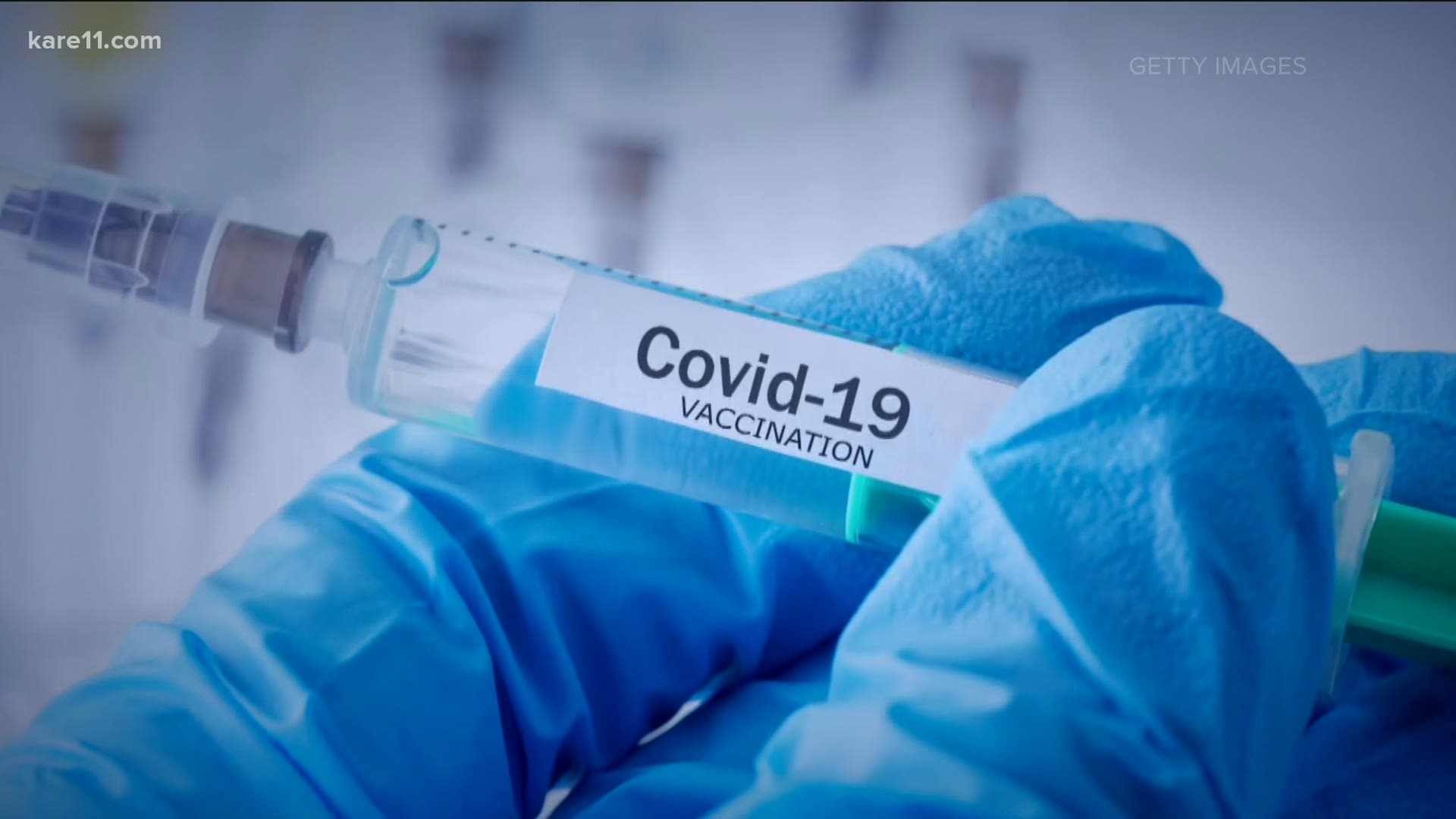ROCHESTER, Minn. — On Thursday the Pfizer vaccine reaches its last step in the United States - a committee hearing in front of the Food and Drug Administration to decide whether to authorize the vaccine's emergency use.
Some Mayo Clinic doctors are re-iterating the two front runners, including Pfizer and Moderna, are very effective and safe vaccines.
"This has been a phenomenal year from the scientific perspective in terms of the fact that we are now talking about rolling out a vaccine for COVID-19," said Dr. Abinash Virk, a Mayo Clinic pediatric infectious disease expert.
The vaccines will likely require two doses. Dr. Virk says in trials, any reaction was mild, usually happened within 48 hours of getting the second dose and that the symptoms went away after seven days.
Dr. Virk says, "The three that are the most common are fatigue, headache and body aches." She also said people experienced chills and fatigue.
The doctors don't expect to see a substantial decrease in hospitalizations until May - after the community starts to get vaccinated. That could be several months after the priority groups start to receive their doses which the Minnesota Department of Health said could be before Christmas.
Doctors caution they don't know how long the vaccine's protection may last or if anyone is immune to it, so they don't want you to stop wearing your mask or social distancing just because you get a shot.
Dr. Melanie Swift is an occupational medicine expert at Mayo Clinic and said, "In order to stop transmission, we have to have widespread immunity."
She understands people are hesitant. But Dr. Swift says researchers didn't take short cuts in the development process. An independent data safety board will monitor the vaccines, and the trials are enormous - upwards of 40,000 people are participating instead of the typical 5,000.
"Vaccines are held to a higher standard than any other pharmacologic that's approved because we're administering it to millions of people who are perfectly healthy," explained Dr. Swift. "All these vaccine's safety precautions are in place even though we're rolling it out very quickly."
Some of the differences between the two vaccines are more practical. The Pfizer vaccine has to be stored at very cold temperatures around negative 80-degrees Celsius, while the Moderna vaccine is more stable in refrigerated conditions.
The vaccines also will be distributed to hospitals, pharmacies and other hubs in varying volumes. The minimum order for Pfizer is 975 doses, while the minimum order for Moderna is 100 doses, meaning the Moderna vaccine is more suited for long term care facilities.
The doctors did identify five group of people who shouldn't take the vaccine when it's available, mostly because they're not included in trials and there's very little research on whether it's safe for them:
- Pregnant women
- Women who are breast feeding
- Children
- People with significant allergies
- People who have had a bone marrow transplant in the last six months

